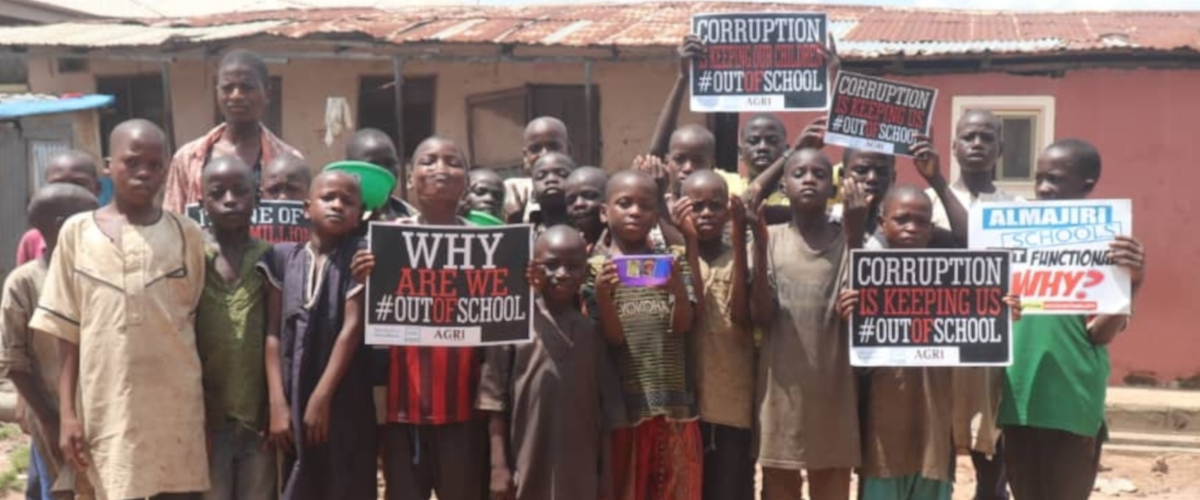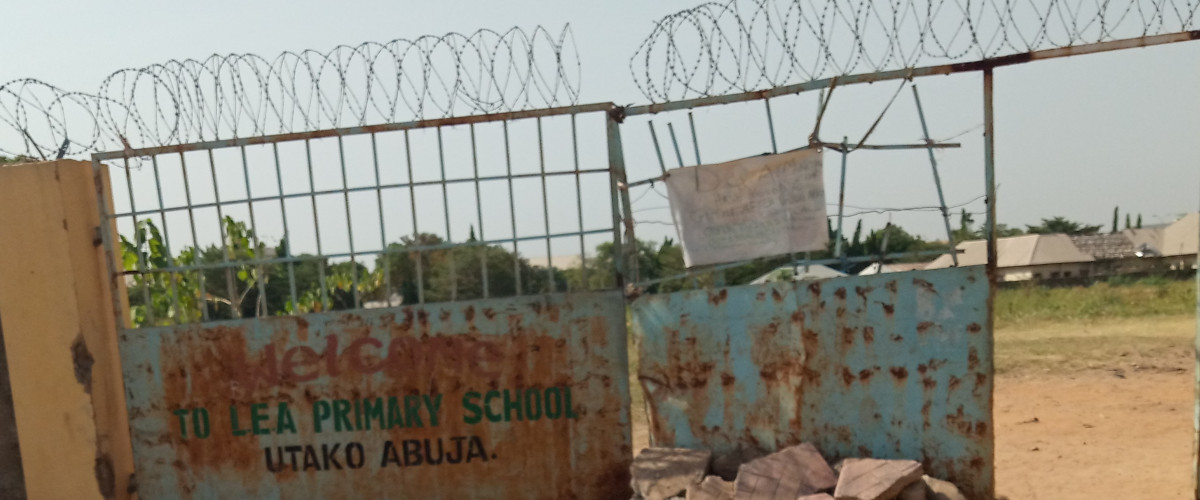
Out of school children (Photo Credit: Almajiri Child Right Initiative)
Corruption has filtered into almost every sphere of the Nigerian economy, including the education sector. This has contributed to the country’s education crises, where an increasing number of children are failing to go to school.
According to the country’s Universal Basic Education Commission (UBEC) – a reform programme that was launched in 1999 to ensure the quality and access of basic education – over 13 million Nigerian children who are of school-going age are not in school. The United Nations International Children’s Emergency Fund (UNICEF) puts the figure at 10.5 million.
“The number of out of school children calls for serious concern,” says UNICEF education chief, Terry Durnnian. “Nigeria should take on the challenge of reducing out-of-school children”.
In a recent interview, Mohammed Sabo Keana of the Almajiri Child Rights Initiative (ACRI) – an advocacy and support platform that holds government accountable on the issue of out-of-school children – said that corruption is playing a large role in keeping Nigerian children out of school.
He claims that many politicians are pocketing funds – either through kickbacks or through diversion into frivolous projects.
“In many of these Northern states, there are a lot of children who wish to go to school but the schools are not available in the first place. Even where there are schools, there are few teachers, lack of infrastructure and even manpower to do it. There is a lot of money that has been budgeted to finance construction of schools, [and to ensure the] welfare of teachers, but all those things are not in place and so you find out that the money meant for these projects are then being diverted to other uses”, Keana said.
“There are dilapidated structures in most primary schools, [there are] no teachers, [and] the teachers [that are] available are not motivated, [there is] no chalk for writing. The whole education system is in a state of collapse right now and that’s why we are having [an] education crises in our country. Besides the fact that we have the highest out-of-school children in the world, we are also having [an] education crises”.
In 2018, the federal government of Nigeria allocated N605,8 billion (€1,4 billion) to the education sector, amounting to just 7 per cent of its national budget. Over N100 billion (€240 million) was given to the UBEC. Inadequate funding allocation, coupled with corruption that has seen the diversion of funds meant for the education sector means that basic education has alluded millions of Nigerian children.

The gate to LEA Primary School Utako (Photo Credit: Gift Olivia Samuel)
A visit to LEA primary school Utako, located in the heart of the Federal Capital Territory (FCT), reveals poor infrastructure and dilapidated structures. From the entrance of the school alone, one would be discouraged from entering as the gate already begs for attention. It is clear that students are being made to learn in an unconducive environment.

LEA Primary School Utako, Abuja, side view of a block of classrooms (Photo Credit: Gift Olivia Samuel )
According to Alhaji Ibrahim Aliyu, chairman of the parent-teacher association at Government Secondary School Lugbe, funds generated from the schools are not used for what they are meant for. Aliyu pointed out that in the FCT, the school fees that are collected, are often not used for what it is intended for, including the maintenance of classrooms and provision of teaching.
He also pointed out that “corruption among other factors is the reason for the increase in the number of out-of-school children. When a governor keeps hundreds of millions as security votes, what is he using it for, unaccounted? That money can be channelled to education”.
There are signs that corrupt officials are being held to account for their actions.
In September 2018, Anum Iho, former chairman of the State Basic Education Board (SUBEB) – an offshoot of the Universal Basic Education Commission in the states, established to address the inequality in educational opportunity at the basic level and improving the quality of its provision – was sentenced to 12 years imprisonment for embezzling funds meant for the training of teachers in Benue State. Iho was found guilty of misappropriating N91,5 million (€220,000), and of taking a bribe of N14,9 million (over €36,000).

Students in a primary school in Abuja hurrying to the Assembly ground (Photo Credit: Gift Olivia Samuel )
The consequences of having a high number of out-of-school children are enormous, from security to economic and even social impacts. Nigeria has seen the security consequences in recent years in the form of Boko Haram and other violence across the different parts of the country. A recent report by the Brookings Institution shows that the number of Nigerians in extreme poverty increases by six people every minute. “At the end of May 2018, our trajectories suggest that Nigeria had about 87 million people in extreme poverty, compared with India’s 73 million. What is more, extreme poverty in Nigeria is growing by six people every minute, while poverty in India continues to fall”.
While the African Union theme of the year 2018: “Winning the Fight Against Corruption: A Sustainable Path to Africa’s Transformation”, was officially launched by Nigeria’s President, Muhammadu Buhari in January 2018, a lot still needs to be done if the fight must be won. It all has to start with having all children of school age enrolled in school and funds meant for schools properly utilized for its intended purpose.

